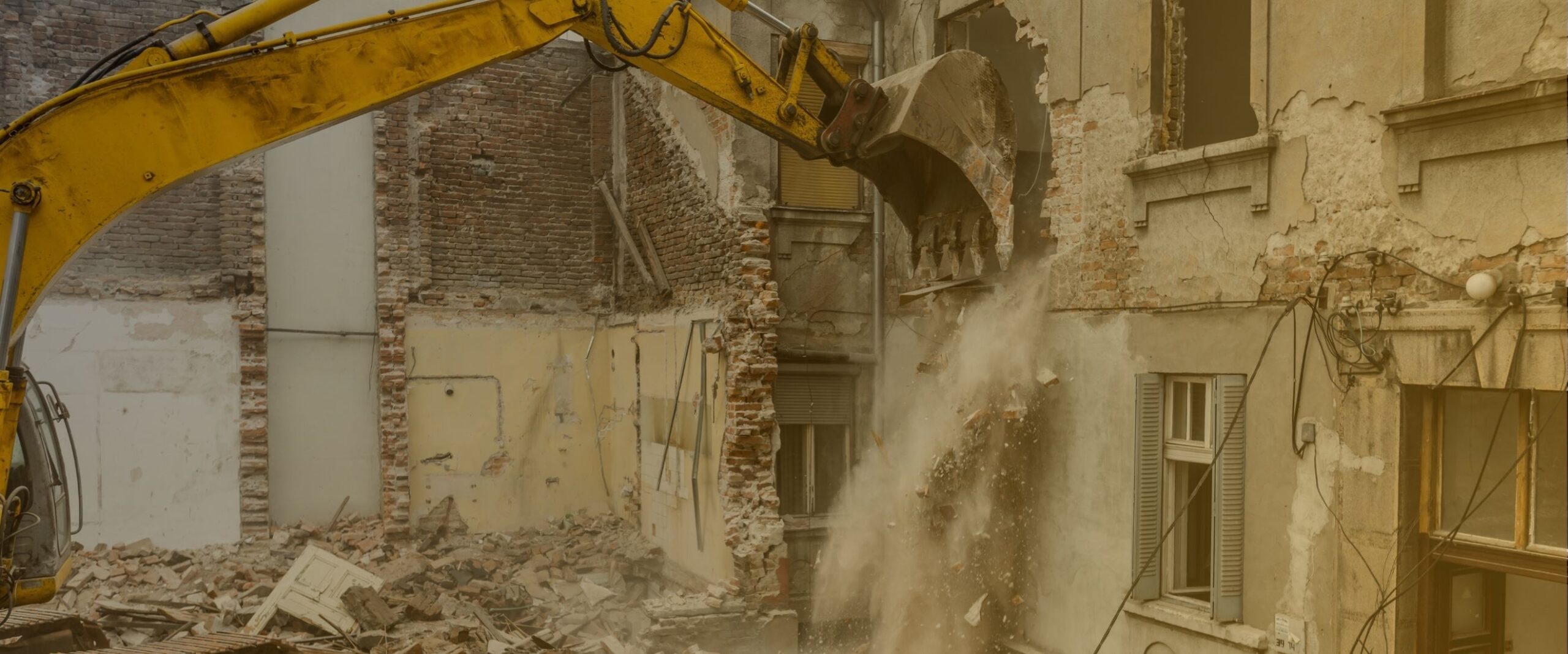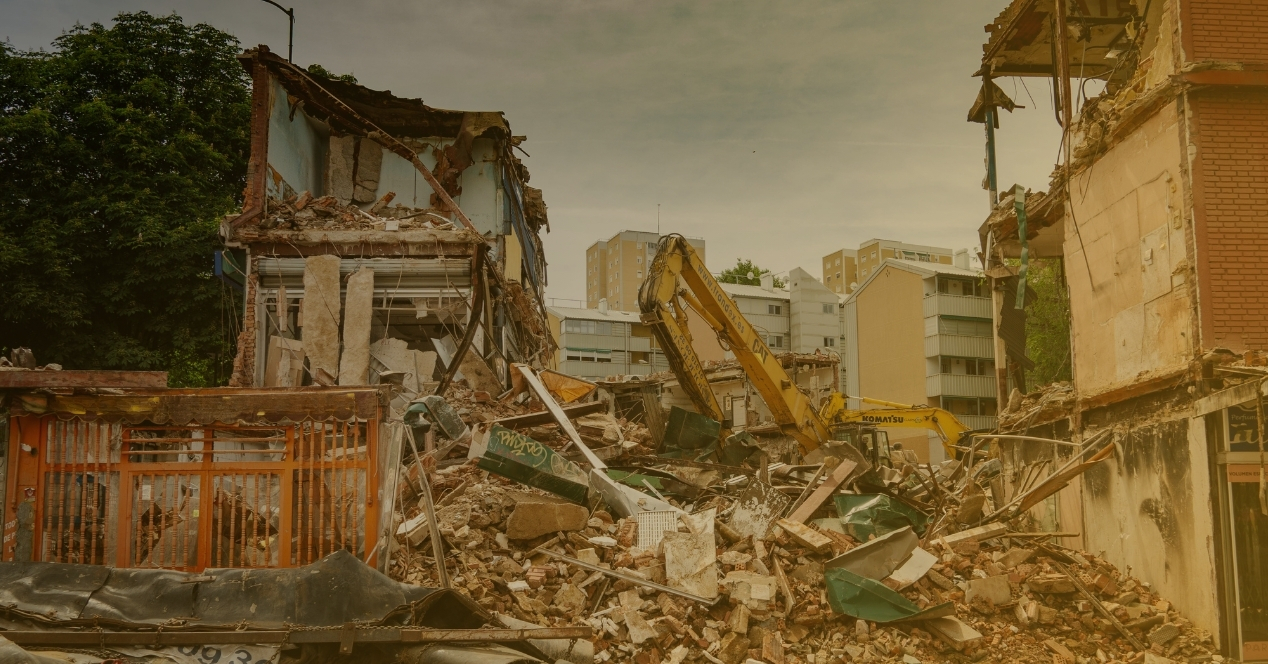Analysis
Supreme Court reserves judgement in ‘Bulldozer Action’ case; stay on demolitions remains
As the Court discussed suggestions for ‘pan-India’ guidelines, it stopped the UN Special Rapporteur on Housing from intervening

On 1 October 2024, a Division Bench of Justices B.R. Gavai and K.V. Viswanathan reserved judgement in a batch of petitions challenging unlawful bulldozer demolitions by government authorities nationwide. The Supreme Court has been hearing the petitions since 2022.
The case was substantially heard for the first time this year on 2 September 2024. At that time, the Bench expressed its desire to frame “pan-India guidelines” on bulldozer action to prevent illegal demolitions. That day, Justice Viswanathan had disapproved of unlawful demolitions which were carried out in response to, often, disconnected accusations, “A father may have a recalcitrant son, but if the house is demolished on this ground…this is not the way to go about it.” He was likely referring to the demolition of Rashid Khan’s home in Udaipur in August 2024. Khan’s home was destroyed shortly after his tenant’s teenager son allegedly stabbed one of his classmates.
Earlier this week, parties recommended key considerations to be kept in mind while framing the guidelines. Solicitor General Tushar Mehta and Additional Solicitor General K.M. Nataraj, appearing for the Union and states such as Delhi, Rajasthan, Madhya Pradesh and Uttar Pradesh, argued that the pan-India guidelines must not benefit “non genuine litigants” i.e. those who are illegally encroaching. The petitioners, on the other hand, pressed upon recommendations, such as a longer notice period and proper appeal process to ensure safeguards for victims of bulldozer action.
The Court also turned down an intervention plea filed by the United Nations Special Rapporteur on Adequate Housing to submit recommendations on the ‘pan-India’ guidelines from an international human rights law perspective.
Respondents: Illegal demolitions are unacceptable, but non-genuine litigants should not be advantaged
Since the first day of hearing, the Union and the state governments have consistently maintained that demolitions on the ground that the “owner or occupant of such property is involved in a criminal offence”, was absolutely illegal. On 1 October, Mehta furthered this stance. As per the latest affidavit, which he read out, “the demolition of an immovable property can take place only for violation of and in accordance with procedure prescribed in the respective applicable municipal law, law governing development authority, town planning, etc.” Even in the case of a heinous crime, like rape, murder or terrorism, “conviction can never be a ground for demolition,” he stated.
Mehta also advised against the pasting of a “show cause” notice at the premises of the property prior to demolition, a suggestion proposed by the petitioner Jamiat Ulama I Hind. He stated that various municipal laws provided for a notice period of ten days. The most convenient method, he stated, was to send communication to the accused through a written notice sent via registered post. A show cause notice would be the “second alternative” if the posted notice returned unserved.
Justices Gavai and Viswanathan came up with another recommendation: the notices should also be published on an online platform. Mehta, at the moment, was hesitant, “I am not aware…whether all properties are digitised and available or not.” But Justice Viswanathan was adamant on this proposal, “Once you digitise it, then there is no scope for any complaints either way.”
For most of the hearing, Mehta circled around two points: the ‘pan-India’ guidelines should not be specific to any particular community, and that the guidelines don’t unintentionally benefit illegal encroachers. Previously, the Court had clarified that it is not focussing on any particular community. Reportedly, bulldozer demolitions have been found to disproportionately target the homes of Muslim persons. Arshat Madani, the president of Jamiat Ulama I Hind, wrote on X, that the petition was “against the dangerous politics of bulldozers that have been started to destroy minorities especially Muslims.” The Court, however, reiterated that the guidelines would not be community specific. Justice Gavai said, “Whatever we are laying down, we are a secular country…we are laying it down for all the citizens, for all the institutions, not for any particular community.”
Mehta also expressed his apprehension that if the guidelines are not narrowly framed, encroachers will gain advantage from them. The Bench was quick to remind that its previous order, issued on 17 September, staying bulldozer demolitions had clearly specified that encroachments in public spaces, roads, water bodies, railway lines and footpaths can be demolished as per the rule of law. Mehta, however, suggested that the guidelines should discourage encroachment in the same force as it discourages illegal demolitions. He stated that the Supreme Court should be careful about laying down a law on bulldozer demolitions by merely looking at “few instances” where bulldozer actions were taken against persons accused of committing an offence. ,
Justice Viswanathan pointed out that the average number of homes demolished in the past few years was 445,000 , as per reported data. Petitioner counsels jumped into the opportunity. They stated that their latest affidavit listed 28 cases in the last two years where homes of persons were demolished arbitrarily, solely on the basis of unconnected accusations. Justice Viswanathan pointed out to Mehta that there was a clear difference between demolitions generally and bulldozer destructions against accused persons, “For example, there are two structures having violations…But proceedings are initiated against one. And you find that in the background there is a criminal offence which has soon before happened. That is the real [crux of the problem].”
Petitioners: Longer notice period, full survey of area of demolition, express authorisation of district magistrate crucial
Petitioner counsels harped on a substantive notice period to be given prior to the demolitions. Senior Advocate C.U. Singh, appearing for petitioner Rashid Khan, argued that even while he understood the state’s “legitimate interest” in ensuring that public land is not encroached, “none of that obviates giving people notice, hearing, and passing orders and allowing an appeal.”
The counsels also submitted that different state, municipal and panchayat laws have varied notice periods, pointing out that some states have 30 days, or 45 days, or 60 days: ”Your Lordship may lay down, in the exercise of Article 142…one standard minimum period of notice across the country, and have some additional safeguards where people are incarcerated.”
Advocate Prashant Bhushan, for interveners, suggested that the Court should allow a notice to encroachers if their immovable property has remained on public lands, roads, or water bodies for a significant period of time. Justice Gavai, however, was not inclined: “We are only concerned here with misuse of the municipal laws for demolishing of the houses who are involved in a criminal matter…We don’t want to enlarge the scope.”
Senior Advocate Mohammad Rafat Shamshad suggested that any authority should not target any specific “mohullah (neighbourhood)”. Further, to obviate the possibility of a ‘targeted demolition’, the municipal authority must carry out a survey of the entire locality in which the particular building is located. That way, if other illegal properties are also discovered, legal action may be pursued against them too. Such a process would ensure that in a locality with multiple illegal constructions, only one person’s home is not targeted and destroyed owing to unconnected allegations.
Senior Advocate Sanjay Hegde argued that each order of demolition must be passed through the district magistrate to ensure that, on paper, there was executive approval. Justice Gavai observed that this process would be impractical given the workload of the district magistrates who would have to approve every single demolition order.
Justice Gavai: Intervention plea of UN Special Rapporteur for Adequate Housing turned down
On 27 September 2024, the UN Special Rapporteur on Adequate Housing had filed an intervention application to submit suggestions for the pan-India guidelines from an international human rights law perspective. Senior Advocate Vrinda Grover, representing the Special Rapporteur, insisted that the application was being filed by an expert to assist in framing the guidelines. “Across the world, there is…a tradition of filing amicus briefs,” Grover argued.
However, both Mehta, and Justice Gavai were highly disinclined to allow the intervention. “We don’t want to internationalise the issue,” Mehta argued, pointing out that Balakrishna Rajgopal, the Special Rapporteur was a “US based rapporteur.” Grover retorted that Rajagopal was Indian American, and a global expert on housing.
But Justice Gavai claimed that the matter was not one of housing at all. “We are here not concerned with the adequate housing problem,” he said, “We have sufficient experts from India assisting us in this matter.”
The Court reserved judgement. It further noted that its interim order of 17 September 2024, under which it stayed all bulldozer actions, will continue to remain in effect.

